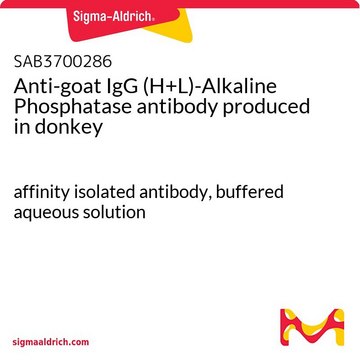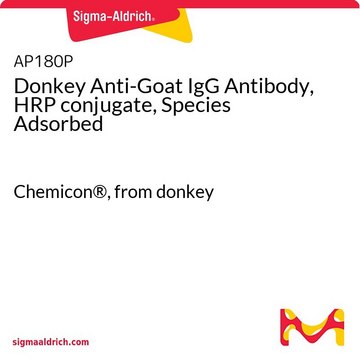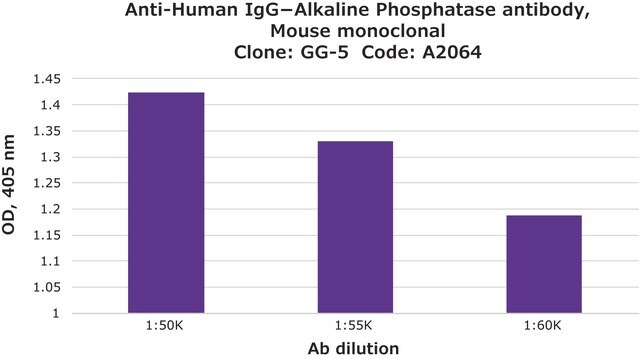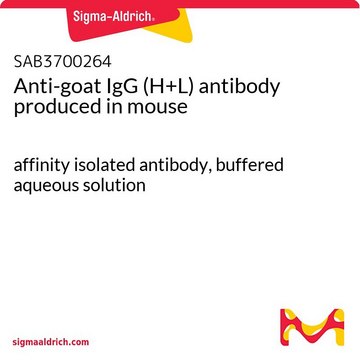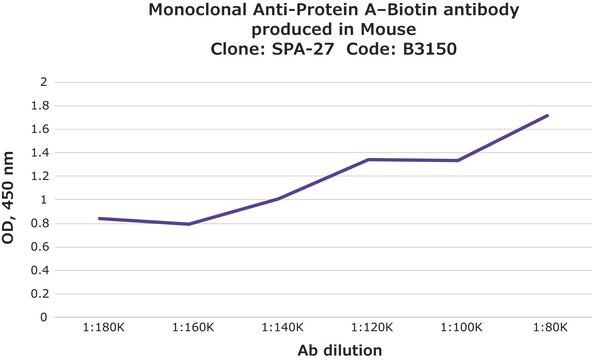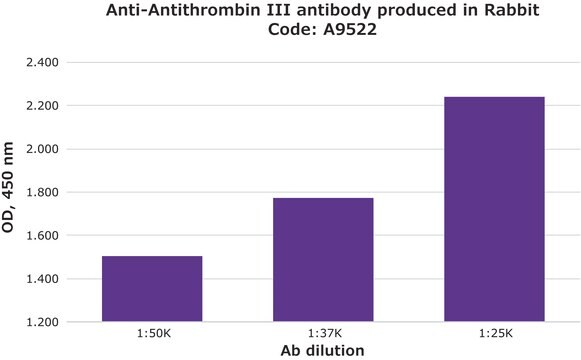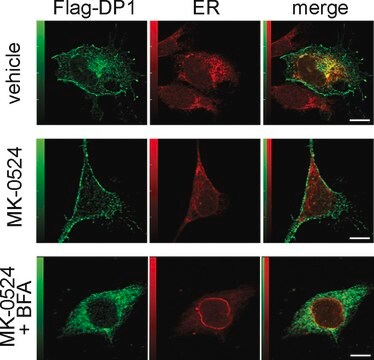AP180A
Donkey Anti-Goat IgG Antibody, Alkaline Phosphatase conjugate, Species Adsorbed
0.6 mg/mL, Chemicon®
About This Item
Recommended Products
biological source
donkey
Quality Level
conjugate
alkaline phosphatase conjugate
antibody form
F(ab′)2 fragment of affinity isolated antibody
antibody product type
secondary antibodies
clone
polyclonal
species reactivity
goat
manufacturer/tradename
Chemicon®
concentration
0.6 mg/mL
technique(s)
ELISA: suitable
western blot: suitable
shipped in
wet ice
target post-translational modification
unmodified
Related Categories
Specificity
Application
Secondary & Control Antibodies
Secondary Antibodies Adsorbed for Dual Labeling
Physical form
RECONSTITUTION:
Reconstitute to 1.0 mg/mL with 0.5 mL sterile distilled water.
Storage and Stability
Legal Information
Disclaimer
Not finding the right product?
Try our Product Selector Tool.
Signal Word
Warning
Hazard Statements
Precautionary Statements
Hazard Classifications
Acute Tox. 4 Dermal - Aquatic Chronic 3
Storage Class Code
11 - Combustible Solids
WGK
WGK 3
Certificates of Analysis (COA)
Search for Certificates of Analysis (COA) by entering the products Lot/Batch Number. Lot and Batch Numbers can be found on a product’s label following the words ‘Lot’ or ‘Batch’.
Already Own This Product?
Find documentation for the products that you have recently purchased in the Document Library.
Our team of scientists has experience in all areas of research including Life Science, Material Science, Chemical Synthesis, Chromatography, Analytical and many others.
Contact Technical Service